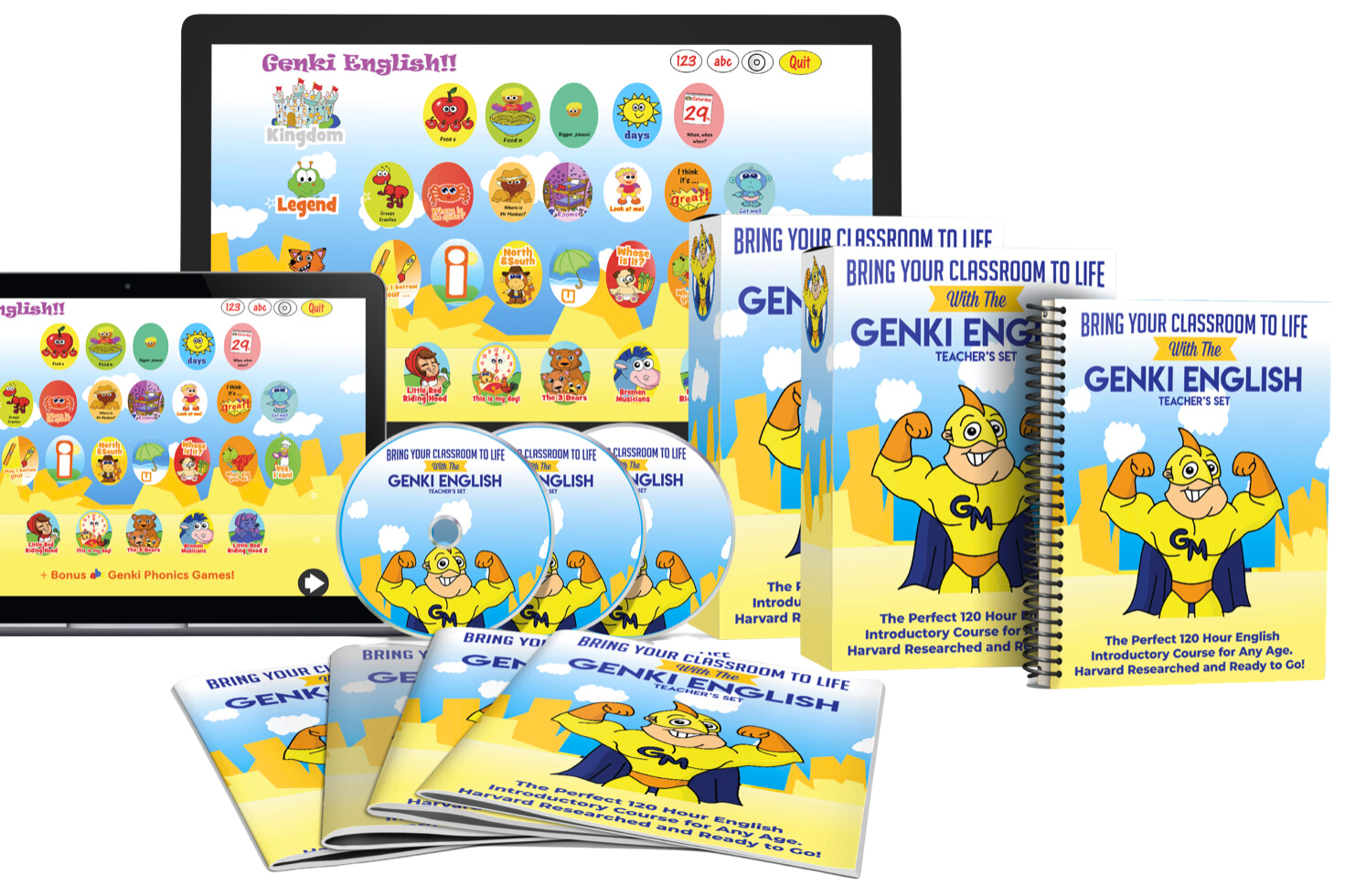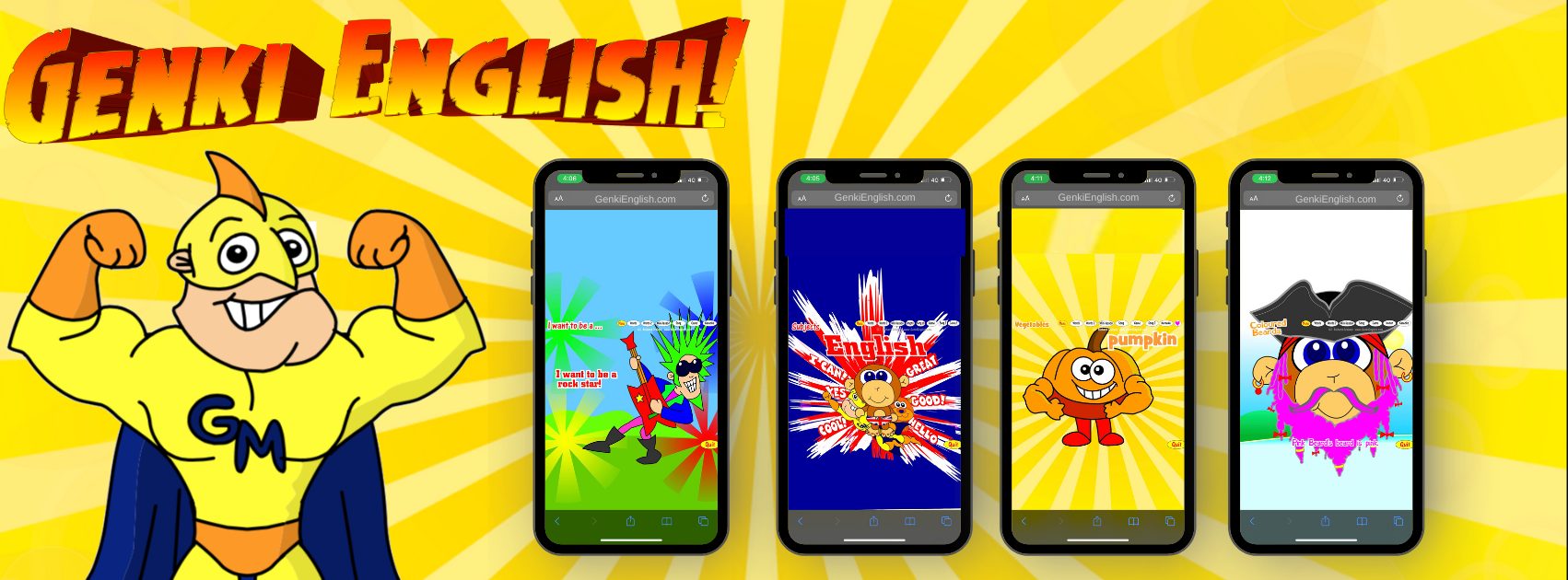Last time we had “Get by, or get fluent”
But why should we, as English teachers, make the effort to learn the students’ own language?
Well, I’m sure, as a teacher you’ve had at least one student ask you “Why learn English?”
And it’s exactly the same for teachers learning their language, it is a heck of a lot of work and effort.
So … Why do we learn it?
We have to be very clear on our reasons, not just for the good days when we can see the path ahead, but especially for the bad days when we plateau and think “Why on Earth am I doing this?”
So here are a few “hidden” benefits of being fluent in another language as a language teacher …..
Respect
From a student’s point of view, who would you respect more:
The overweight aerobics teacher or the one with super ripped abs?
The guitar teacher who can play Led Zeppelin backwards or the one who struggles to play a basic chord pattern?
The language teacher who speaks other languages fluently or the one who spends years in a country and can hardly say a word? 🙂
I hope this one is obvious, but it is amazing how many language teachers live in a country for *years* and never learn the language. I know you have lots of “reasons” but students (who go to other schools) *are* looking at you like you are that aerobics or guitar teacher. So now’s the time to change.
After all, who would you rather learn Kung Fu from, me or Bruce Lee? 🙂
You get better students (and parents!)
How many times have you had to deal with problem students or monster parents?
Being fluent in their language, and because of the “respect” above, you will end up attracting the better parents and students i.e. the ones who really want to learn and not just come to lessons because they have to.
You get more students
Partly because of the points above, but also because you can chat with parents and really understand what they are wanting from your school. Very often what they really want is not what we *think* they want and we get frustrated when they don’t agree with us.
Ninja Tip: The real star Genki English teachers say they attribute their schools’ amazing success – packed waiting lists & classrooms – to this!
But if you speak their language you find out directly, without needing a translator, from the nuances in the words they use and more importantly, the words they don’t use! Then you tailor your lessons to exactly what they want and need, get happier students and happy current students means many more new students.
You better understand the problems your students are having
Sometimes we teach something over and over and it just does not seem to be sinking in.
If you speak the kids’ language, you can just ask them what it is about the problem that they don’t get and you’ll understand their reply. Very often it’s something simple, like you’ve made a mistake with a flashcard or they’ve misunderstood a meaning. Using their language carefully leads to lots more “aha” moments!
(Ninja Bonus Tip: If you are learning the language of your students, you’ll also know what areas they need more or little practice in as you’ll know what parts of the language are similar or not.)
You learn lots of new teaching ideas
As you’re not going to be teaching yourself, you learn so many different new teaching techniques and ideas. Especially if you go for a course like Michel Thomas it will have a huge impact on how you think about teaching. Similarly …. you learn lots of things to avoid in your own lessons!
You become less stressed and more patient
 Teaching can be incredibly stressful. Sometimes it seems to take forever for the kids to learn something that, to you, seems really, really simple.
Teaching can be incredibly stressful. Sometimes it seems to take forever for the kids to learn something that, to you, seems really, really simple.
But when you are actively learning a language you naturally understand the time it takes and you naturally give the kids much more time when they need it. People are always amazed by how patient I am with my teaching, but it’s because I’m always challenging myself to learn new languages so I never forget just what it feels like for the students. You also master the difference between when space is needed,………………..
……. and where you’ve just not explained something very well.
Life will be super happy and full of roses
Well, not quite, but I think you know what I’m getting at here. Just as eating healthy or having a satisfying job improves your quality of life, understanding the language around you does even more. It’s like the world suddenly moves from black and white to super HD colour IMAX TV.
So those are the reasons, the next step ….. just how do we do this? How do you get fluent?
Keep tuned in!
Be genki,
Richard
P.S. If any of you have other reasons to get fluent as a teacher then please do write them up in the comments!
P.P.S. Ninja Teaching Tip: So, what is your answer when your students ask you “Why should I learn English?” Now refine it so you can express it as few a words as possible. Less than 5 if you can.
P.P.P.S. With the respect thing above, as you’ve probably noticed there are quite a few “chalk’n’talk” “the old ways are best” teaching “experts” around who are quite against what we do at Genki English and they usually aren’t afraid to say it. Invariably these people only speak one language. I *love* discussing ways of teaching and improving education, but if you want to call me out on ways of learning a language, you’ve got to be able to walk the walk, not just talk the talk!




Hello Richard,
I’ve been pondering the answer to the question: “Why learn english?” that pops up now and again…And what I’ve started to say is “Ca te rendra plus fort!” (“It will make you stronger”- 5 words;)). The answer is intiguing enough so that I can expand: if you can speak english, you won’t be afraid of travelling, of meeting different people, of discovering new things, of reading new books. The more languages you speak -and english in particular- the more you get to see the world as a large open place (and even you don’t always travel “in person”, you can travel virtually, by internet) rather than a tiny, narrow corner from which you’re afraid to venture out. You become a sort of superhero! Sometimes I add (for me it’s very important…) that there are so many amazing things to read in english and these readings (books, poetry) will make them stronger too. What do you say when your students ask you this question?